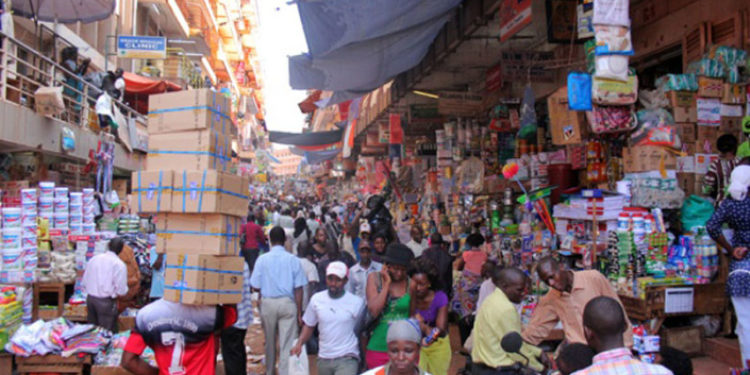Recovery for most businesses is expected to take more than three months and possibly until the end of the year 2020, after lifting the lockdown.
This is according to a new study conducted by United Nations Capital Development Fund (UNCDF) in partnership with Makerere University and Uganda Revenue Authority.
Titled ‘Uganda Business Impact Survey 2020’, the study launched on Thursday 21 highlights the impact of COVID-19 on formal sector small and medium enterprises.
According to the Ministry of Trade and Cooperatives (MoTIC), 4,200 companies across the country have shut down as a result of the ongoing COVID-19 lockdown, and only 215 industries/factories, especially those producing essential commodities, are still operating.
The 4,200 companies that have since shut down could not maintain the workers and other Standard Operating Procedures (SOP) that were issued by President Museveni and the Ministry of Health requiring the factories to keep staff on site if they were to continue operating during the lockdown.
According to the survey, 70 per cent of the respondent businesses estimate their recovery time of more than three months. Only 4.1 per cent believe that it will take one month or less whereas the remaining 25.6 percent envisage a recovery period of one to three months.
“Industries with the longest period of recovery of more than three months include accommodation and catering (57.6 per cent of respondents); production and supply of electricity, heat, gas, and water (54.2 per cent); real estate industry (54.2 per cent); financial industry (44.2 per cent); and manufacturing (41.2 per cent),” the survey reveals.
Meanwhile, the tourism industry, which started slowing down in January and stopped operating in early February, does not expect to recover until over a year from now, bringing the full recovery to the second quarter of 2021. The slowest recovery is expected in the Western and Eastern regions.
The survey also suggests that businesses should be put back into operation as soon as possible subject to their compliance with health norms and regulations including disinfection arrangements and social distancing.
It says the longer businesses stay inoperative, the greater the economic impact and the more difficult it becomes for them to resume their operations.
“The smaller companies which are the backbone of any economy are particularly concerned. Bigger companies are easy to refinance to start operation, but once small companies are out of business, they may never recover for various reasons.”
Uganda needs proper economic relief package;
The survey further stated that Uganda as a country needs a proper relief and economic stimulus package that would define all government measures in support of businesses through an act of parliament.
“The relief package would set any reduction in utility fees and rental costs, extension of taxation datelines or duration of tax holidays, wage entitlements of the staff (full pay or reduced) as well as any possible government support in this respect, access to affordable capital, etc. Businesses are convinced that without such a package to kickstart the economy, many businesses may not be able to recover.
“Businesses need to be part of the discussions around such a relief and economic stimulus package. They propose a National Dialogue or Consultations bringing together the business community from different types of businesses and different sectors to forge the way forward in a collaborative, participatory and transparent manner. The National Dialogue should involve relevant Ministries, Departments and Agencies (MDAs) taxation institutions, financial institutions, and should identify mutually acceptable solutions to the problems of Ugandan businesses.”
Background;
The future of the private sector and its contribution to economic growth has become uncertain. In response to the COVID-19 pandemic, many countries have introduced partial and complete lockdowns limiting movement across borders and within countries. Uganda started feeling the impact of the pandemic even before the first COVID-19 case was reported in the country.
Industries like tourism and trading were among the first to suffer as a result of the dwindling international circulation of passengers and goods. In its response to the crisis, the Ugandan government from 30 March 2020 placed the country under a national lockdown to reduce the spread of the virus, resulting in the closure of many businesses. The businesses affected by the national lockdown are those that are not regarded as providing essential services.
As workers and consumers stay home and the usual supply chains are disrupted and aggregate demand suppressed, businesses are losing revenue, unemployment levels and loan defaults are rising, putting significant pressure on the banking and financial system. Worldwide, the debate on the impact of COVID-19 on businesses has shifted from the primary focus of growth to one of business continuity, and optimization of working capital to save resources.
The survey is part of an extensive socio-economic assessment conducted by the United Nations in Uganda. In April 2020, UNCDF in collaboration with Makerere University (College of Business and Management Sciences) and with the support of the Uganda Revenue Authority conducted a business survey of Uganda enterprises the objectives to i) establish the actual and expected impact of COVID-19 on their business operations and ii) provide feedback for the development of policy recommendations and a business relief and recovery package to alleviate the negative impact of COVID-19 on the private sector and accelerate economic recovery.
Do you have a story in your community or an opinion to share with us: Email us at editorial@watchdoguganda.com













